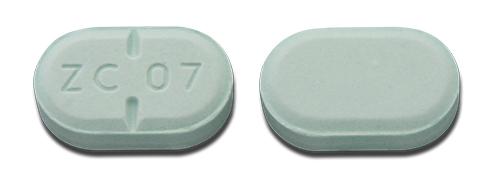Haloperidol and Alcohol/Food Interactions
There is 1 alcohol/food/lifestyle interaction with haloperidol.
Haloperidol Food/Lifestyle
Moderate Food Interaction
Alcohol can increase the nervous system side effects of haloperidol such as dizziness, drowsiness, and difficulty concentrating. Some people may also experience impairment in thinking and judgment. You should avoid or limit the use of alcohol while being treated with haloperidol. Do not use more than the recommended dose of haloperidol, and avoid activities requiring mental alertness such as driving or operating hazardous machinery until you know how the medication affects you. Talk to your doctor or pharmacist if you have any questions or concerns.
Switch to professional interaction data
Haloperidol drug interactions
There are 759 drug interactions with haloperidol.
Haloperidol disease interactions
There are 21 disease interactions with haloperidol which include:
- dementia
- hyperthyroidism
- parkinsonism
- CNS depression/coma
- related psychosis
- previous neuroleptic malignant syndrome (NMS)
- seizure disorders
- acute alcohol intoxication
- cardiovascular disease
- CNS depression
- NMS
- seizure
- alcohol
- cardiovascular disease
- QT prolongation
- renal/liver disease
- hyperprolactinemia/breast cancer
- neutropenia
- dehydration
- hyperprolactinemia
- tardive dyskinesia
More about haloperidol
- haloperidol consumer information
- Check interactions
- Compare alternatives
- Pricing & coupons
- Reviews (205)
- Drug images
- Side effects
- Dosage information
- Patient tips
- During pregnancy
- Support group
- Drug class: miscellaneous antipsychotic agents
- Breastfeeding
Related treatment guides
Drug Interaction Classification
| Highly clinically significant. Avoid combinations; the risk of the interaction outweighs the benefit. | |
| Moderately clinically significant. Usually avoid combinations; use it only under special circumstances. | |
| Minimally clinically significant. Minimize risk; assess risk and consider an alternative drug, take steps to circumvent the interaction risk and/or institute a monitoring plan. | |
| No interaction information available. |
See also:
Further information
Always consult your healthcare provider to ensure the information displayed on this page applies to your personal circumstances.


